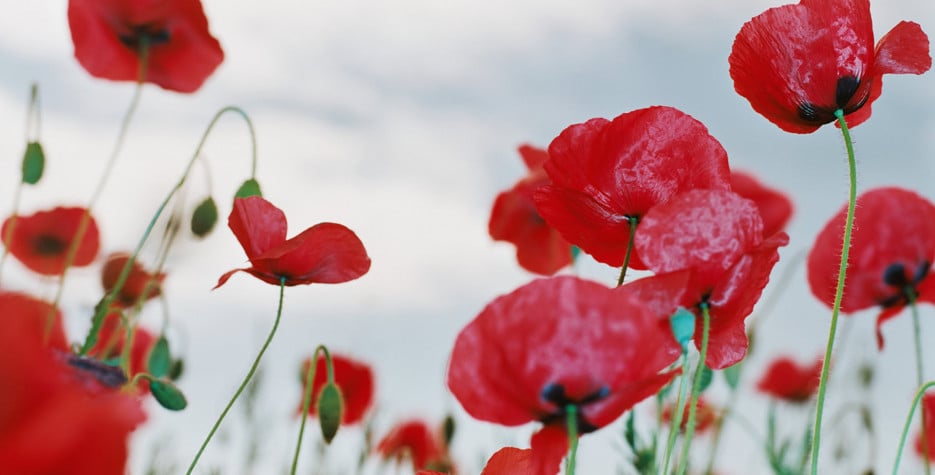Remembrance Day is commemorated on November 11th each year and marks the end of World War I in 1918.
The intention of the day is to remember the fallen on both sides in the 'Great War'.
On the face of it, that all appears quite straightforward, yet, as with many holidays if we look a little deeper, we soon see things aren't quite as simple they seem.
November 11th has an older tradition that is, by coincidence, associated with war and peace. In the Christian calendar, it was known as 'Martinmas' or St. Martin's day.
Martin was a Roman soldier who converted to Christianity, and because of his newfound religion, refused to fight under a pagan flag. After leaving the army, Martin (ironically named after Mars, the Roman god of war) became a monk, rising up through the orders to eventually become a bishop in Gaul (modern-day France).
In the context of the modern-day holiday, November 11th marks the signing of the armistice (peace agreement) between the Allies and Germany at Compiègne, France.
The armistice took effect at eleven o'clock in the morning - the "eleventh hour of the eleventh day of the eleventh month."
However, while this date is used to reflect the end of the whole war, it technically relates to the cease-fire on the Western Front; fighting continued after November 11th 1918 in parts of the Ottoman Empire.
Did you know?
World War I didn't legally end until Allied Forces left Constantinople (now Istanbul) on August 23rd 1923.
After the 'end' of the war in 1918, it didn't take long before the signing of the armistice was adopted as a suitable time and date for countries involved in the war to mark the sacrifice of their soldiers, with official remembrance services taking place in the UK and USA in 1919.
Remembrance Day around the world
Despite the common history, Remembrance Day has evolved in different ways around the world. Depending on where you are in the world, it can be known as Armistice Day, Veterans' Day, Remembrance Day, Poppy Day and may not even be celebrated on November 11th.
Bermuda
A public holiday in Bermuda, Remembrance Day is marked with a parade where surviving war veterans and the descendants of deceased veterans march wearing full military uniform and medals. The march begins at 11 AM and ends at the Cenotaph in front of Cabinet House. It is here that they lay wreaths and a two-minute silence is held to remember those who fought in the first world war and other conflicts since then.
544 Bermudians served in the first world war, mainly in the Bermuda Militia Artillery and the Bermuda Volunteer Rifle Corps. In total, 53 Bermudians were killed in action, 15 were wounded, 14 were taken prisoner of war, four went missing in action and 19 died of disease or wounds.
Canada
In Canada, Remembrance Day is a public holiday and federal statutory holiday, as well as a statutory holiday in all three territories and in six of the ten provinces.
From 1921 to 1930, Armistice Day was held on the Monday of the week in which November 11th fell and Thanksgiving was held on the same day. In 1931 an act was adopted that said the day should be called Remembrance Day and be observed on November 11th.
Cayman Islands
In the Cayman Islands, Remembrance Day is a public holiday on the Monday closest to November 11th.
United States
In the United States, the day was renamed to Veteran's Day in 1954, after a campaign by a member of the public to extend the commemorations to include those who served in World War II and other conflicts. America commemorates its war dead on Memorial Day on the last Monday in May.
United Kingdom
In the UK, the official commemoration was moved to the Sunday closest to November in 11th 1939, to avoid any disruption to production in factories supporting the war effort. This Sunday observance has remained since, though November 11th may also be marked with a moment of silence at 11am.
Australia and New Zealand
In Australia and New Zealand, the events and losses at Gallipoli have taken deeper hold on the psyche, and the ANZAC Day celebrations are the main occasion for people to remember the fallen of conflicts.
Belgium and France
The day is marked by an official holiday in both France and Belgium. While the end of the war may be seen as a time for happiness and celebration; the unprecedented loss of life in the war means that the day is a sombre day of reflection. In France, the day is marked by parades across the country, such as the grand parade at the Arc de Triomphe in Paris. See Armistice Day for more details.



